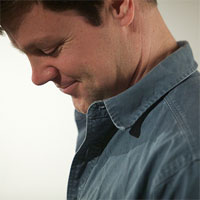1. Paul Roberts does the math for Mother Jones and figures that organic, local farming is an unresolvable catch-22: it’s so resource-intensive that it can’t be used on a large enough scale to make a difference. What he doesn’t acknowledge, as commenters point out, is that reducing the impact of food production isn’t worthless, it’s just less good than eliminating that impact. I’m growing carrots, potatoes, onions, broccoli, tomatoes, lettuce, peas, and a variety of herbs this year—I’m not about to feel guilty because global climate change marches on in spite of my own efforts.
2. Paul Starr forecasts a new age of political corruption in The New Republic:
News coverage is not all that newspapers have given us. They have lent the public a powerful means of leverage over the state, and this leverage is now at risk. If we take seriously the notion of newspapers as a fourth estate or a fourth branch of government, the end of the age of newspapers implies a change in our political system itself. Newspapers have helped to control corrupt tendencies in both government and business. If we are to avoid a new era of corruption, we are going to have to summon that power in other ways. Our new technologies do not retire our old responsibilities.
3. For Bookslut, VQR Online Contributing Editor Jacob Silverman reviews The Age of Orphans, the debut novel by VQR contributor Laleh Khadivi. You can read her short story “Air and Water,” in our current issue.
 4. John Casteen’s new collection of poetry, Free Union, is now on sale, as is Susan B. A. Somers-Willett’s, Quiver. Theirs are the seventh and eighth books in the VQR Poetry Series. John-Phillip Sheridan has some great photos of John Casteen’s release party, held last week.
4. John Casteen’s new collection of poetry, Free Union, is now on sale, as is Susan B. A. Somers-Willett’s, Quiver. Theirs are the seventh and eighth books in the VQR Poetry Series. John-Phillip Sheridan has some great photos of John Casteen’s release party, held last week.
5. From our Spring 1980 issue, John Hammond Moore traces the history of the cocktail and explains why mixed drinks might be America’s greatest gift to the world in “The Cocktail: Our Contribution to Humanity’s Salvation”:
Of course, almost every culture in any age has indulged in social gatherings enlivened by fermented grains and distilled spirits, but this bisexual ritual of hors d’oeuvres, soiled napkins, ash-flecked carpets, high-pitched laughter, and outer garments piled in a bedroom seems to be uniquely American and 20th century to boot. According to H. L. Mencken (The American Language, Supplement One), many foreigners think the cocktail is “the greatest of all contributions of the American way of life to the salvation of humanity.” The sage of Baltimore concedes that its origins are vague but then cites no less than seven possibilities.
The most persuasive of these hail from New Orleans and France. Apparently Antoine Amédéé Peychaud, an apothecary who fled the Santo Domingo unpleasantness, opened a shop at 437 Rue Royale in the Crescent City shortly before 1800. There he often entertained his Masonic Lodge pals with a highly flavored brandy toddy served up in a double egg cup (coquetier) which Americans called a “cocktail.” This word also may trace its roots to a mixed drink known as a coquetele long favored by residents of Bordeaux and perhaps introduced into America during the Revolutionary War by French officers.
6. Eaten a supermarket tomato this winter? Slaves probably picked it, writes Barry Estabrook in an unusually topical article in Gourmet. Immokalee, Florida has two claims to fame: It’s where a huge chunk of the nation’s tomatoes are grown, and it’s also where we keep our slaves, in the form of migrant workers who are beaten, shackled, and forced to pick fruit. You shouldn’t eat tomatoes in the winter, anyway—they’re a late-summer food.
7. VQR’s man in the House of Representatives, Rep. Tom Perriello, is cosponsoring H.R. 1308, the Veterans Mental Health Screening and Assessment Act, which would require combat veterans to undergo a series of one-on-one mental health evaluations for a period of three months after returning from duty. Ashley Gilbert made clear the necessity of such a change in policy in “The Life and Lonely Death of Noah Pierce,” from our Fall 2008 issue. (Or you can listen to our December interview with Gilbert.) The bill is currently in the House Veterans’ Affairs Subcommittee on Health—if you want to help this bill along, see if your congressman is on that committee and, if so, contact him and ask him to support it.






